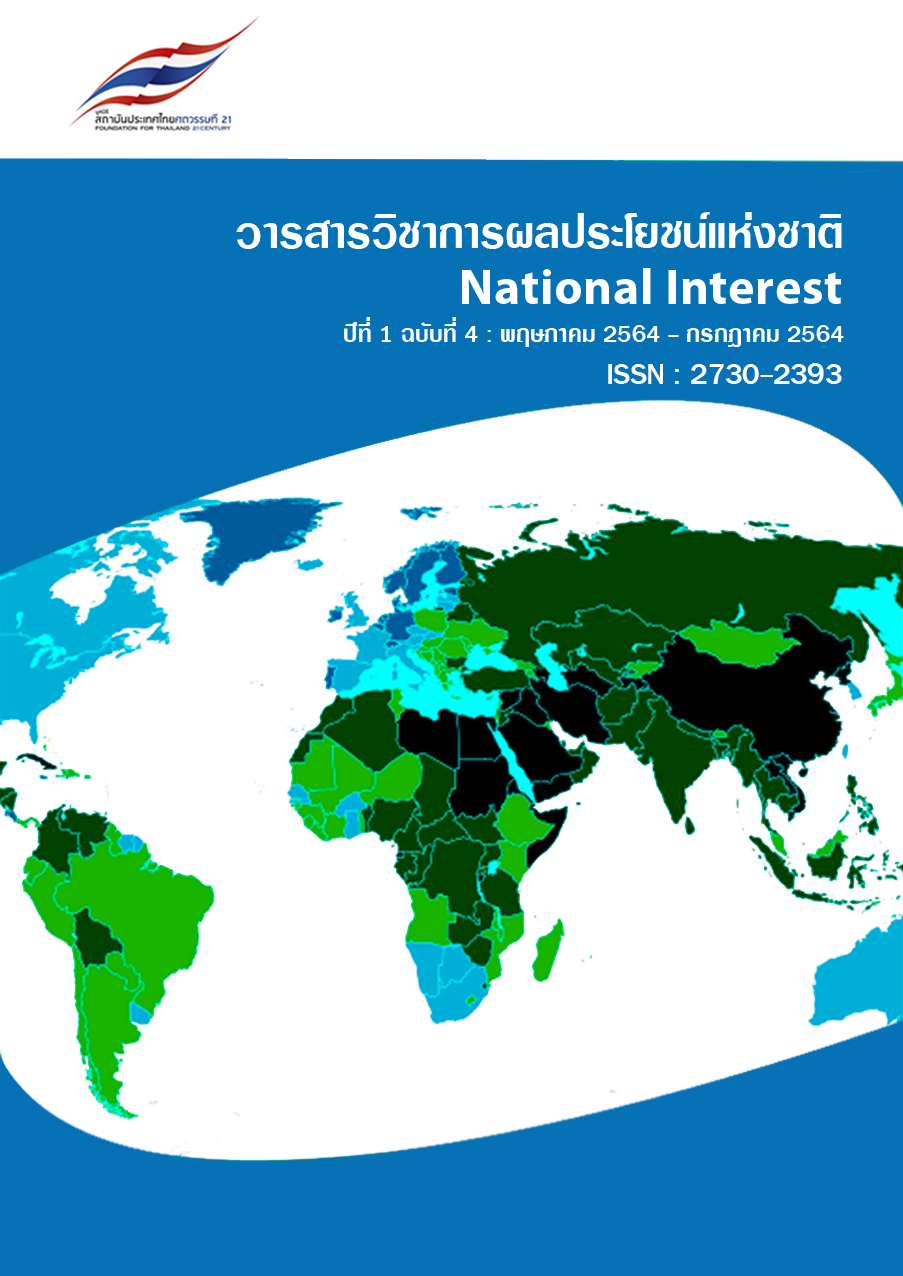Knowledge Absorptive: The New Paradigm in Educational Administration
Main Article Content
Abstract
The Educational Administration theory have a diversity of changes and as quick as society moves towards a globalization, 21st century, digital era, ASEAN and the Education 4.0 concepts. Whether it happens to the new paradigm such as Non-Cognitive Skills, STEM, World Class Standard School, Civil-state School or Corporate University meanwhile it comes to educational administration in basic education for coincides with the existing Corporate University. The two institutions format also requires a new paradigm called Knowledge Absorptive as a new tool of educational administration in modern times. On the basis of knowledge management and its influence on the management of modern enterprises, rather than by the general theory of knowledge management applications with educational administration. Educational organizations will be more developed than at present, so knowledge management is at the heart of one of the educational administration. In addition, knowledge management and another idea that is interested in educational administration in present day. Especially when the idea of establishing a new institution, the private sector organizations have established their own institutions, including the public school called Civil-state School and the Corporate University, the process leading to Knowledge Absorptive. The enterprise development just improve the ability of the processes within the organization. The changed is more important, it is innovation and a new paradigm in the educational administration today.
Article Details

This work is licensed under a Creative Commons Attribution-NonCommercial-NoDerivatives 4.0 International License.
Thai Journal of National Interest Academic Journal under Creative Commons Attribution-NonCommercial-NoDerivatives 4.0 International License The journal allows access or distribution of academic work without charge or registration. To support the exchange of knowledge Scope covers academic work in geopolitics. Geoeconomics and Innovation
Users can share, copy and distribute all information published in National Interest Academic Journal in any form or medium subject to the following conditions:
Citation — Permission to use, reproduce, distribute, or modify the work. But credit must be given to the owner of the work. If the work is used without credit, the name of the owner of the work will be Must obtain permission from the owner of the work first.
Noncommercial — The work may be used, reproduced, distributed, or modified. However, the work or article may not be used for commercial purposes.
Cannot be modified — The work may be used, reproduced, and distributed. But do not modify the work. unless permission is received from the owner of the work first
References
Thailand,”Thesis of the Doctor of Education degree program. Chulalongkorn University,2002
[2]Kannika Chaowatthanakun,“Graduate Quality and Labor Market Acceptance,”
Academic Journal of Educational Administration. Kasetsart University,2014
[3]Ministry of Education, “Weaving the power of the People's Republic,” Pracharath School
Project,2016 (Online).Available:www.pracharathschool.go.th. (Accessed September 29, 2016)
[4] I.Nonaka and Hirotaka Takeuchi,The Knowledge-Creating Company: How Japanese Companies
Create the Dynamics of Innovation. Hitotsubashi University,1995
[5]Jakkrit Siririn, “Knowledge Absorption,”Nation weekend,Issue 1176, 12 December 2014.
[6] W.M Cohen and D.A Levinthal, “Absorptive capacity: A New perspective on learning and
innovation,”Administrative Science, Quartery,1990
[7] D.C. Mowary and J.E. Oxley, Inward technology transfer and competitiveness: The role of
national innovation systems. Cambridge Journal of Ecomomics,1995
[8]S.Zahra and G. George , “Absorptive capacity: A Review, Reconceptualization, and extension,”
Academy of Management Review,2002
[9]John Dewey, Experience and Education.Kappa Delta Pi. University of Illinois. USA,1963


